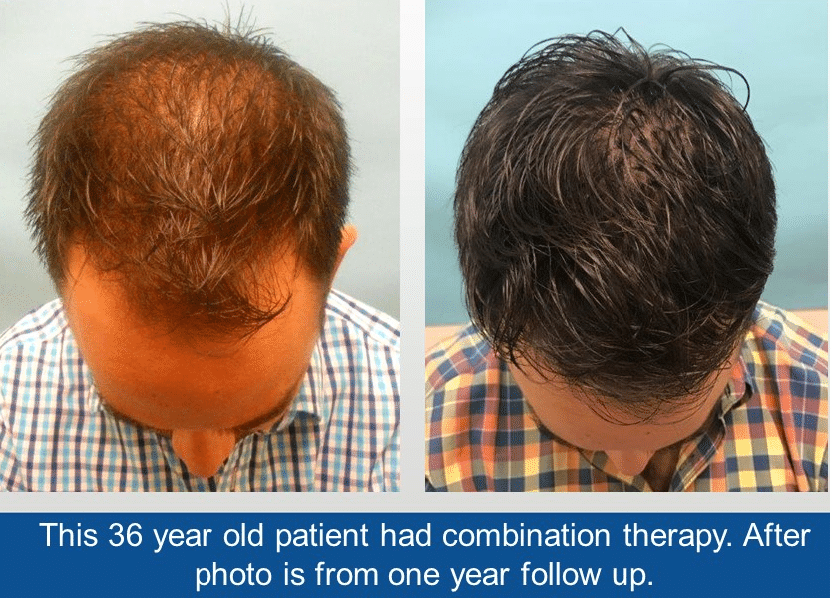
Hair transplants are a great way to restore or lower your hairline for men and some women who qualify and are good candidates with quality donor hair. Our surgeon is board certified and guarantees grafts survival. But there are certain things we want you to know before you have a hair transplant…
Yes, we guarantee graft survival. Meaning the hair that is transplanted onto the top of the head will survive and grow. However, we want you to also take active measures to KEEP the hair on your head that was there before you had the transplant! If you don’t, we can only assume you will lose it, and possibly need a second procedure.
Protest Your Investment: There are FDA-approved products and treatments that stop the progression of genetic hair loss and are effective in doing so 97% of the time. These options also will increase the quality of your existing hair and more than likely thicken up the areas that are currently thinning.
Fight DHT Directly – Make sure you are doing something to fight the DHT directly. We offer a combination medication with finasteride, minoxidil, and biotin compounded into one oral tablet and the results are the best we’ve ever seen.
Aside from medication, there are Laser Light Treatments and Therapies, and other supplements that are also FDA approved and proven to work. Combination therapy is a great way to increase and maximize your results, so we always encourage it.
Track Your Progress: for some patients, after being on the medication or preservation plan for 4-6 months will increase the quality of hair so much that the number of grafts needed for a transplant will decrease. We offer 4, 8, and 12-month evaluations with photos to track and monitor your progress.
Here are some progress photos of patients on the medication or doing the medication in combination with another treatment.
Bottom Line: Don’t consider a hair transplant until you consider preservation.
***These products are effective in other types of hair loss as well: telogen effluvium, post-partum hair loss, alopecia areata, and many more types of alopecia.
Schedule a free consultation to see what options are best for you and your stage of hair loss – call 713-838-1880 today.


